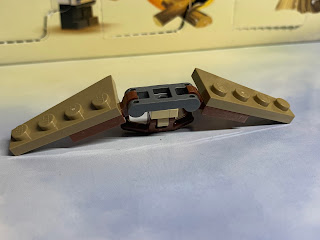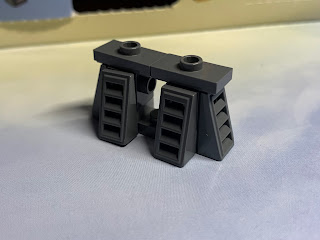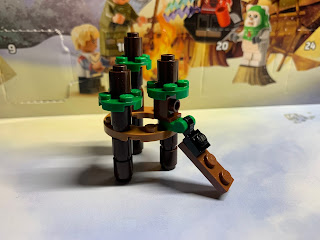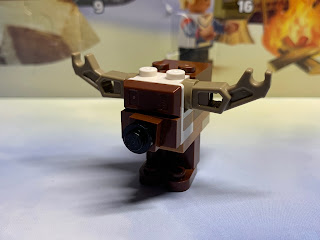It's important for those of us who follow Jesus to not think of the nativity as a once-and-done moment in time about which we can be angry at the innkeeper for not having enough room, or be angry at Herod for killing the children, and sit back and say "I would have made room for them" or "I would have helped". Through Jesus' incarnation, we ought now to see this situation wherever it occurs, and to consider our own actions toward the holy family when we're being the ones who say "no room" or "they are a threat, let them die" or similar.
If one is so sure that one would have helped the holy family, then why not help those in similar fate right now? Helping those now is the only way to help the family back then.

We have refugees who will be resettled in my home area of Eau Claire, WI, through the help of World Relief. Oddly, even in this pre-Christmas time, many locals (and I'm sure many of them would very much proclaim themselves Christian) have been fighting the city and county to try to keep this from happening, and doing so with some fairly weak arguments based mostly on fear: economic, racial, cultural, and some out of sheer ignorance of the process itself. As they place the baby Jesus in their mangers at home all snug and lovely, they are actively trying to prevent other very real people, who are in very real danger, from placing their babies in safe beds - to set up a nativity while basically supporting Herod is a significant failure to understand the nativity and its implications for us.
Without going into the details that any refugees being resettled have years of vetting behind them, and federal law prohibits communities from choosing who gets to live there, and other legal issues, or economic or social ones, from a theological standpoint there is no excuse not to help the stranger, the foreigner, or the refugee. The requirement to do so is right there in the law in the Bible, and using that very language of "foreigner" and "refugee", and right there in the words of Jesus, and right there in the Holy Family's status as refugees when they were forced to flee the violence of the state (Herod killing the children) by going to Egypt for a few years.


As I said at a press conference recently that World Relief, JONAH, and the Eau Claire Hmong Alliance held, as a voice of our moral responsibility to take care of refugees, "The question should never be, 'Can we help?' or 'Can we afford to help?', but, 'We must help, so, How are we going to make this happen, How are we going to make sure that they're safe and taken care of?'" Love for neighbor is an integral part of all the major religions.
Helping those who are currently in the same situation as the Holy Family were 2000 years ago is the way to show that we would indeed have helped them back then. But if we create roadblocks to keep those who are currently in the same situation from finding relief, or if we straight out deny them relief, then we're putting up roadblocks for the Holy Family. "Whatever you do to the least of these, you do to me." Until we see Christ in our neighbor, are we really able to see Christ at all?
















































.jpeg)